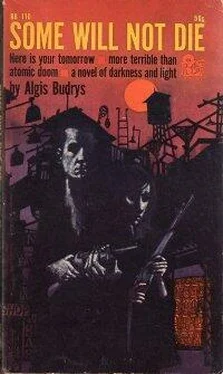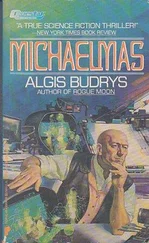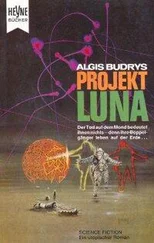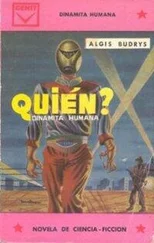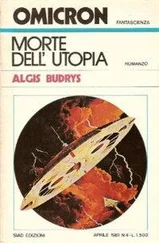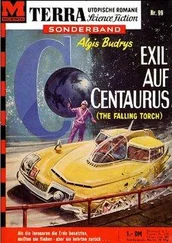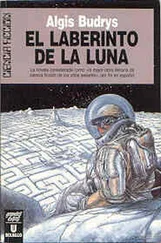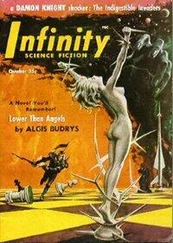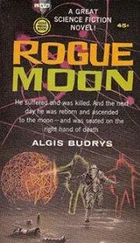Algis Budrys - Some Will Not Die
Здесь есть возможность читать онлайн «Algis Budrys - Some Will Not Die» весь текст электронной книги совершенно бесплатно (целиком полную версию без сокращений). В некоторых случаях можно слушать аудио, скачать через торрент в формате fb2 и присутствует краткое содержание. Год выпуска: 1961, Издательство: Regency Books, Жанр: Фантастика и фэнтези, на английском языке. Описание произведения, (предисловие) а так же отзывы посетителей доступны на портале библиотеки ЛибКат.
- Название:Some Will Not Die
- Автор:
- Издательство:Regency Books
- Жанр:
- Год:1961
- ISBN:нет данных
- Рейтинг книги:4 / 5. Голосов: 1
-
Избранное:Добавить в избранное
- Отзывы:
-
Ваша оценка:
- 80
- 1
- 2
- 3
- 4
- 5
Some Will Not Die: краткое содержание, описание и аннотация
Предлагаем к чтению аннотацию, описание, краткое содержание или предисловие (зависит от того, что написал сам автор книги «Some Will Not Die»). Если вы не нашли необходимую информацию о книге — напишите в комментариях, мы постараемся отыскать её.
Some Will Not Die — читать онлайн бесплатно полную книгу (весь текст) целиком
Ниже представлен текст книги, разбитый по страницам. Система сохранения места последней прочитанной страницы, позволяет с удобством читать онлайн бесплатно книгу «Some Will Not Die», без необходимости каждый раз заново искать на чём Вы остановились. Поставьте закладку, и сможете в любой момент перейти на страницу, на которой закончили чтение.
Интервал:
Закладка:
“Well, I crawled out and the car was between me and the birds with the bazooka. Then my dad crawled out. Both of us were busted up some, but our legs were okay. Meanwhile, these two birds were bangin’ away with rifles. Dad and I, all we had was .45s. I figured the only thing to do was try and run for it, and I said so. Dad said the way to do it was to split up, or they’d get us both. And I couldn’t see it, because if we got separated there was no tellin’ when we’d get back together again. Well, Dad got this funny look on his face and gave me a shove away from him, and he started running. He yelled: ‘Don’t you waste me, hear?’ and he was shooting at these guys. I got ’em both, later.”
“Your dad must have been a funny kind of man.”
Custis shrugged. He sat with the girl through the afternoon, making talk, until finally another rifleman came over to them from the line of huts.
He looked down at Custis and the girl, his eyes flicking back and forth once and letting it go at that. “This Henley fellow you brought wants to see you, soldier.”
“What’s his trouble?”
“I figured that’s his business. He give me his wristwatch to come get you. I done that.”
The man was a big, hairy type—bigger than Custis. But when Custis came smoothly to his feet, annoyance showing on his face, the rifleman took a step back. Custis looked at him curiously. The damnedest people were always doing that with him, and he had a hard time understanding it.
“I’ll see you later,” he said to the girl, and walked off.
Henley was pacing back and forth in his hut when Custis stopped in the doorway. He twitched his lips nervously. “It’s time you got here. I watched you out there, lollygagging with that girl.”
“Make your point, Henley. What’d you want to see me about?”
“What did I want to see you about! Why didn’t you come here as soon as the commander released you? We have to make plans—we have to think this through. We have to decide what to do if our situation grows any worse. Hasn’t it occurred to you that this man might be planning to do almost anything to us?”
Custis shrugged. “I didn’t see any sense in getting all worked up about it. When he makes up his mind, we’ll find out about it. No use making any plans of our own until we find out what his are.”
Henley stared angrily at him. “Don’t you care? Don’t you care if you get killed?”
“Sure I do. But the time to worry about that was back on the plains.”
“Yes, and you decided quite easily, didn’t you?” Henley stared at Custis waspishly. “It wasn’t very hard for you to risk all our lives.” His eyes narrowed.
“Unless—You know something, Custis. No man in his right mind would have acted the way you’ve acted unless you knew you weren’t in any danger.”
“That’s a bad direction for you to think in.”
“Is it? You drove up here like a man coming home. What do I know about you, after all? A freebooting car commander, off the same part of the plains where the outlaws run. Yes, I know you’ve worked for Chicago before, but what does that mean?” Custis could smell the hysteria soaking the officer’s clothes. “You’ve sold us out, Custis! I can’t understand how Chicago could ever have trusted you!”
“They must have, or I wouldn’t of been hired for this job.”
Henley gnawed his lip. “I don’t know.” He stopped and muttered down at the ground. “There are people who want my place for themselves. They might have planned all this to get rid of me.”
“You’re a damned fool, Henley.”
Custis was thinking that, as late as a few years ago, he would have felt sorry for Henley. But since then he’d seen a lot of men go to pieces when they thought they might get killed. More of them died than would have if they’d kept thinking. It seemed to be something built into them. Custis had never felt it, and he wondered if there might not be something wrong with him. But, anyhow, Custis had learned it wasn’t anything to feel one way or the other about. It was something some people did, and when you saw it you allowed for it.
Henley suddenly said: “Custis—if we get out of here, don’t take me back to Chicago.”
“What?”
“No, listen—they’ll kill us if we go back without Berendtsen. Or maybe with him. Let’s go somewhere else. Or let’s stay on the plains. We can live off the country. We can raid farms. Put me in your crew. I don’t care—I’ll learn to shoot a machinegun, or whatever you want me to do. But we can’t go back to Chicago.”
“I wouldn’t have you in my crew if I had to drive and fire the guns all by myself.”
“Is that your final answer?” Henley’s lips were quivering.
“Damned right!”
“You think you know all the answers!”
Custis growled: “Get a hold on yourself.”
And Henley did it. He waited a moment, but then he stopped his pacing, and flicked one hand up to brush his perspired hair back into place. “I’ll get out of this. You watch me—I’ll get out and see you executed.”
Custis said slowly, shaking his head: “Look, I want to get out of here just as much as you do. I think maybe I can. If I do, I’ll try and take you along, because I got you into this. But if you can’t stand the gaff, you shouldn’t of come out here in the first place.”
“Never mind the speeches, Custis. From now on, I’ll look after myself. Don’t expect any help from me.”
“Hey, you two,” the rifleman said from the doorway, “commander wants you.”
The sun was going down behind the mountains. It was still broad daylight farther up on the westward faces of the peaks, but the valley was filling with shadows. Custis followed Henley along the line of huts, feeling a little edgy in the thick gloom here at the base of the cliff, and wondering how all this was going to work out.
He watched Henley. The officer was walking in short, choppy strides, and Custis could see him working his self-control up to a high pitch. His face lost its desperate set, and the look of confidence came back to him. It was only if you knew what to look for that you could still see the panic in him, driving him like a fuel.
They reached the commander’s hut.
“Come in,” the commander said from his table, and Custis couldn’t decide whether he was drunk on his home brew or not. The inside of the hut was so dark that all he could see of the old man was a shadow without a face. It might have been almost anyone sitting there.
Custis felt his belly tightening up. Henley stopped in front of the table, and Custis took a stand beside him.
“I’m glad to see you’re still here, Custis,” the old man said. “I was afraid you might be killed trying a break.”
“I’m not crazy.”
“I didn’t think you were.”
Henley interrupted. “Have you decided what you’re going to do?”
The commander sighed. “Just why would you want Berendtsen back, Major?”
“Then, he’s available?”
“Just answer the question, please. We’ll do this my way.”
Henley licked his lips. Custis could hear the sound plainly. “Well,” the political officer finally said in a persuasive voice, “there’s been no hope of stability anywhere since he was deposed. Governments come and go overnight. A constitution isn’t worth the paper it’s written on. We’ve never been under Berendtsen’s rule, but his law stood up better than most. We need something like that in Chicago—the whole upper Middlewest needs it.” Now that he’d gotten started, he was talking much more easily. “Paper money’s so much mouse-stuffing, credit’s nonexistent, and half the time your life’s at the mercy of the next man’s good will. We don’t have a society—we have a poorly organized rabble. If Berendtsen’s still alive, we need him. He’s the only man anyone’ll follow with any enthusiasm.”
Читать дальшеИнтервал:
Закладка:
Похожие книги на «Some Will Not Die»
Представляем Вашему вниманию похожие книги на «Some Will Not Die» списком для выбора. Мы отобрали схожую по названию и смыслу литературу в надежде предоставить читателям больше вариантов отыскать новые, интересные, ещё непрочитанные произведения.
Обсуждение, отзывы о книге «Some Will Not Die» и просто собственные мнения читателей. Оставьте ваши комментарии, напишите, что Вы думаете о произведении, его смысле или главных героях. Укажите что конкретно понравилось, а что нет, и почему Вы так считаете.
